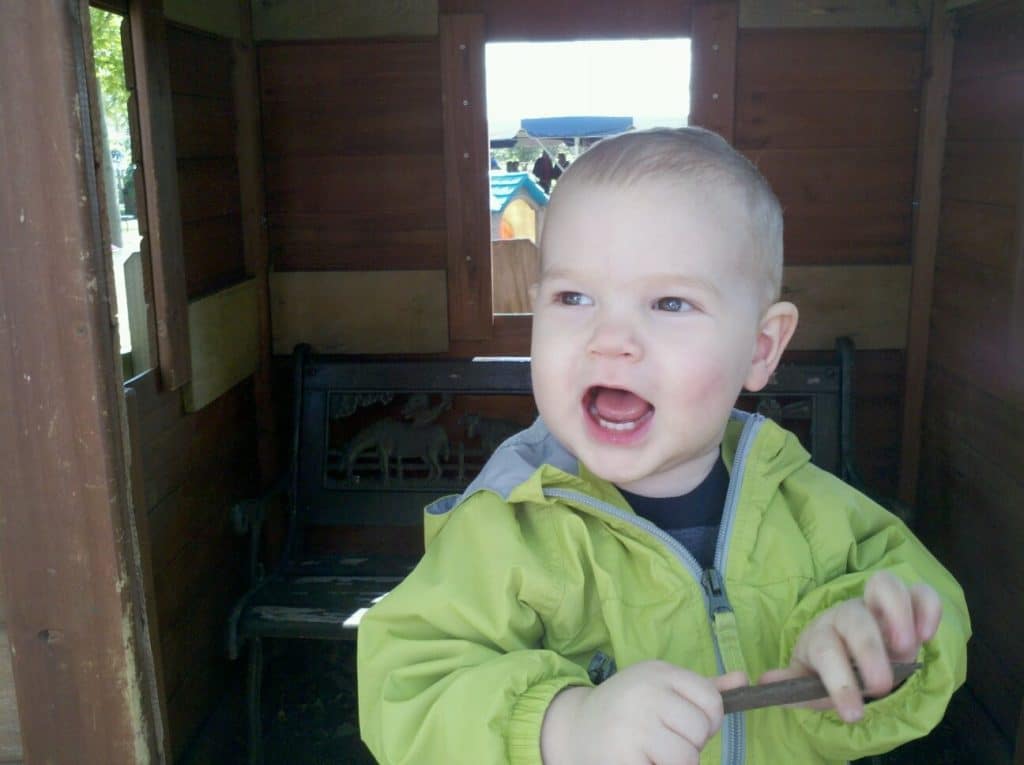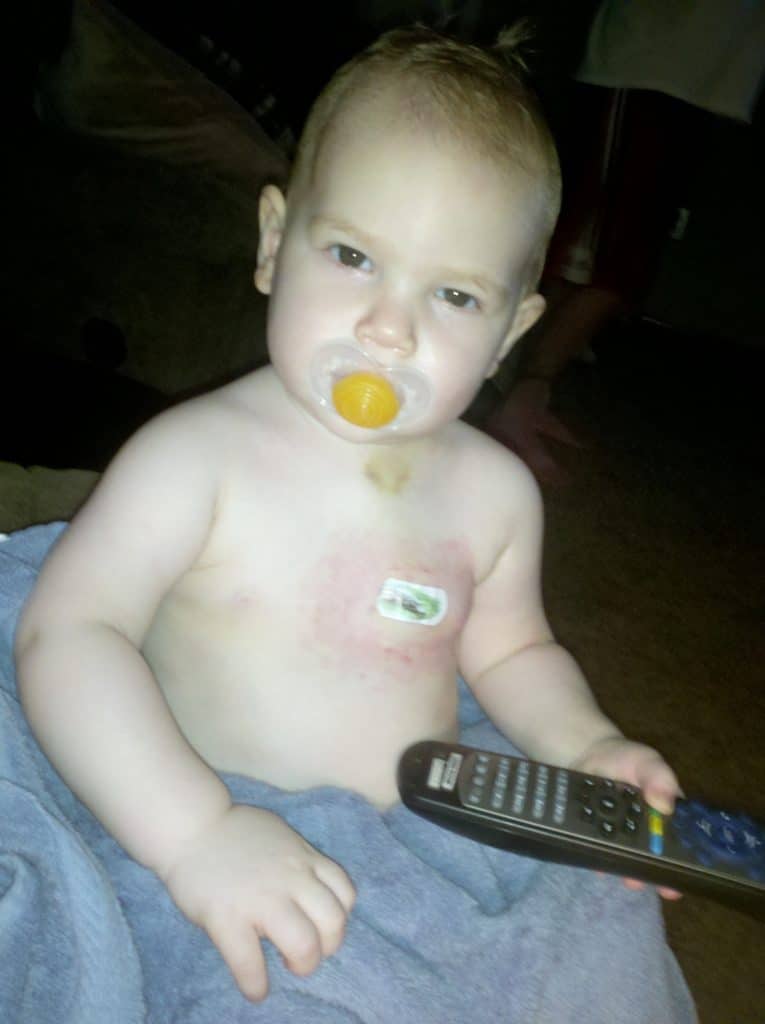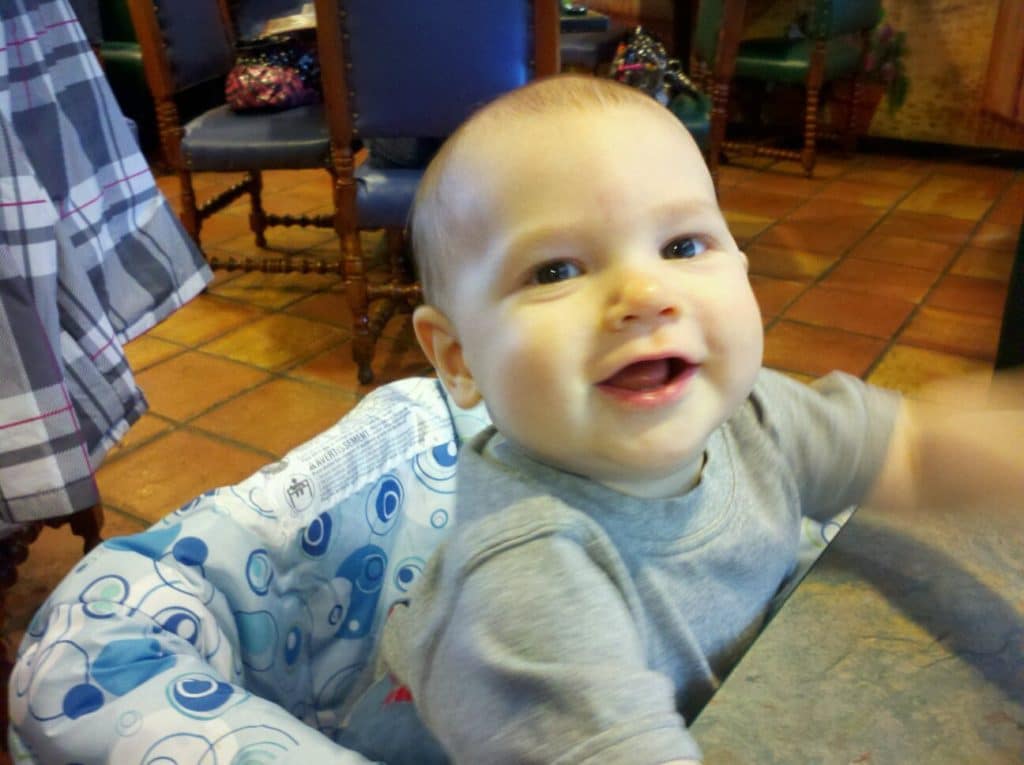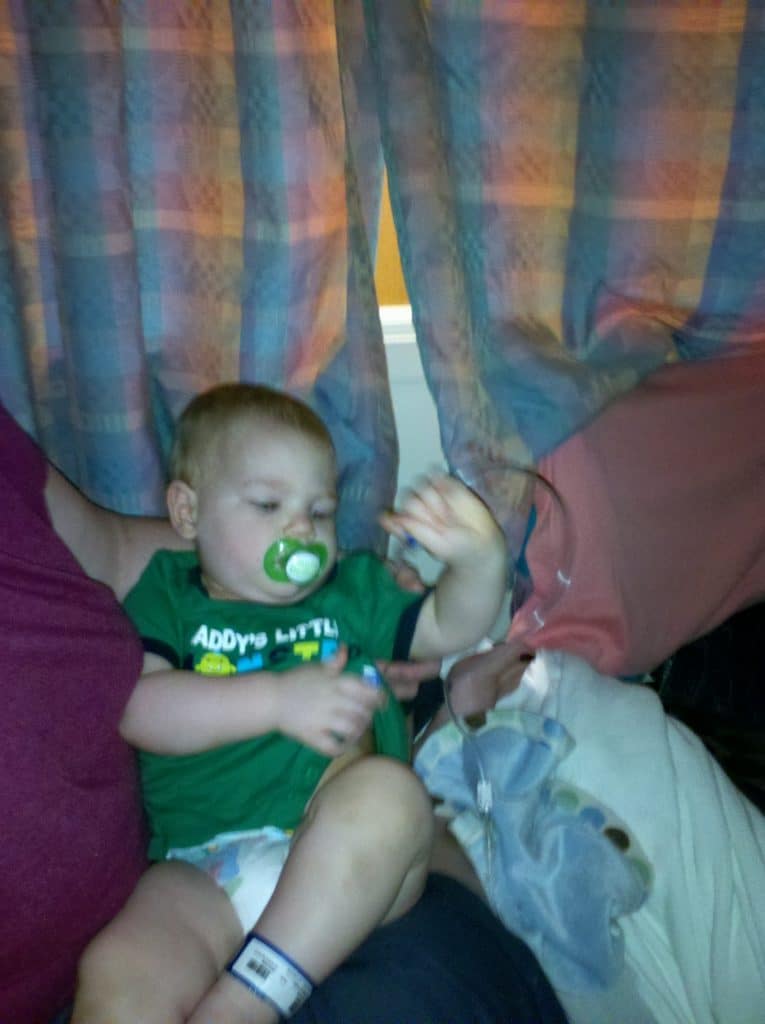Bubba’s Outcome
Part 3
Bubba did start to wake up, and that made us very happy. He opened his eyes and was almost immediately able to focus on Ashley. That made us happy too. Then he made a very unhappy face, an incredibly unhappy face.
He started sniffling. Then he started crying.
We were a bit concerned.
The crying got louder. The crying began to include screaming.
We didn’t have the slightest clue what was going on. What was wrong? Did his chest hurt from the surgery? Was he scared because he woke up somewhere new?
Let’s take a break for a learning experience. You may or may not be aware that some small children have an adverse reaction to anesthesia. The reaction does not occur when they are initially anesthetized; it happens when they wake up. It’s called emergence delirium.
The attending nurse reassured us that this was not uncommon. She did acknowledge that it was difficult. I’m sure she’d seen more than enough parents come through and experience angry kid syndrome upon waking. We were also told that they could give medicine prior to surgery that would decrease the severity of this reaction.
The whole process lasted about 15 minutes. Bubba slowly calmed down and began to resemble the child we sent into surgery, not the angry little monster that had emerged into the recovery room. He was obviously exhausted. All of us were ready for it to be over. We were cleared to head back to his room.
Bubba had made it through the surgery and we were good to go. The reaction to coming out of anesthesia was actually minor in the grand scheme of things. Ashley and I were on our way to becoming more active in the role of Bubba’s care. With the port in place we’d be trained how to infuse him at home. All of the stress that we were currently experiencing would be more than worth our troubles in the end.
The true test would come when it came time to test the port. Being a medical newbie, I had no idea how complicated or how simple this process would be. Bubba would be given sufficient time to rest, but we all knew that a functional port was the only path to us getting home.
Later, I joined three nurses in an exam room located right down the hall from our hospital room. It might have been a procedure room. The combination of fluorescent lighting and white overload made the room incredibly uncomfortable.
The goal was to ensure that Bubba’s port would function properly so we could determine how much time he’d need to remain in the hospital. The nurses were upfront and honest about the fact that he would not react favorably to this process.
My job would be to help hold Bubba still and do my best to calm him. I wanted to do my best on both fronts. He remained accessed because the surgery site would be far too sensitive to access with a new needle. Our goal was simply to connect a line in and make sure that everything could be pushed with no problem.
Bubba is accessed, so the nurse is now ready to push saline as soon as she gets blood return.
No blood return. That’s fine. Ports can be finicky. She tries again. No blood return. Not a problem, we’ll just put his arms above his head and that’ll open things up. A pattern began to emerge. The nurse could not get blood return.
Bubba was rolled onto his side.
Bubba was allowed to sit up.
We maneuvered and finagled him around trying to get blood return. Each time the nurse drew back the plunger nothing happened.
Bubba was getting angry. He got even angrier as the nurses tried to adjust the needle that was used to access the port. Any form of sedation or local anesthetic had worn off quite some time ago. He was now a one-year-old with a needle being moved around in his chest.
The noises started as intermittent crying. The intermittent crying became more constant. The crying was then joined with some attempts to get out of our grip. My willingness to keep him on the table was beginning to fade. I just wanted to pick him up and get him out of the room. Bubba soon began screaming at the top of his little lungs. His face was soaked with tears and bright red in color.
The issue with the port simply added to our emotional ups and downs. We began as parents frightened because their small child needed surgery. The emotional upswing came when we thought about more effectively managing his condition. We were scared to death when he went back for surgery and elated when he came out. My spirits hit rock bottom again when I went back to the room to tell Ashley that the port was not functioning.
It was not long into the day when a physician approached us.
A gaggle of short white-jacketed medical students were in tow. To be completely honest my first thought was, “Ugh.” The last thing I needed was the medical neophytes peering over us as the actual doctor spoke.
The physician explained to us that it was clear the port was not functioning.
The x-rays that they’d taken showed the line from the port was pushed up against the wall of the vein. This meant that there wouldn’t be any blood return. The opening on the end of the line was simply sucked up against the wall of the vein.
The med students continued to hover. I began to fume.
We were informed that the line would need to be moved in order to make the port functional.
“So, will he need to have another surgery?” I asked in a noticeable irritated voice.
The physician answered yes.
“So, the first surgery was done incorrectly and now he has to go in again?”
This is the type of time that my wife would often describe as “Derek acting like an ass.”
I should have been more aware that there was no reason to be angry with the surgeons. They were trying to thread a line into the body of a baby. That cannot be an easy task.
The physician calmly indicated that the line placement was not optimal and that Bubba would need to have another procedure. They wanted to schedule surgery as soon as possible. The surgeons would be able to use the existing incision.
We ran into one major issue: clotting factor.
There was none. You can’t operate on a hemophilia patient unless they’re factored up. Without available factor, there would be no surgery.
We were fortunate to have an incredible point of contact for our specialty pharmacy. Her name was Julie and she was aware that we were headed to St. Louis for Bubba’s surgery. In fact, she had given me her personal cell phone number in case anything happened. It didn’t really register at the time that the number might come in useful.
Our nurse told us that it could be a few days before they could be restocked.
I was not ashamed to call Julie. As expected, I didn’t get her at first. She probably saw a weird number come up on her cell and didn’t feel like hearing about her car’s expired warranty.
… and then Julie called back.
I explained what was going on and how we were certain she was a factor wizard who could make our necessary medication appear with the wave of a wand. Problem number one was that the pharmacy could not ship to the hospital. We found out that insurance would cover having Bubba’s factor shipped to us in St. Louis. We’d just take possession and then hand it over to the physician.
Julie was awesome and, I imagine, is still awesome. I doubt she’ll every read this article. If she does, Julie you are a superhero in the eyes of the Markley family.

We made one major change. Bubba was given medication prior to surgery that would help us avoid him turning into a screaming little devil spawn when the anesthesia wore off. We had faced enough challenges in a short time and there was no reason not to stack the deck in our favor in any way we could.
The outcome this time was far better. Surgery went quickly, Bubba did not awake yelling and crying, and we were able to ensure that the port was functional. Our emotional rollercoaster had finally come to a gentle stop instead of catching fire, going off the rails, and slamming into an animal shelteer filled with kittens. Things were much better the second time around.
Now the work would begin. Ashley and I would be trained to administer factor twice per week via Bubba’s new port. A new chapter in our life had begun!
Derek Marley lives in Saltillo, Mississippi with his wife Ashley and their children Abbey and Bubba. He is the executive director of two University of Mississippi regional campuses and an assistant professor in the school of education. Ashley is a fourth grade teacher in the Tupelo Public School District. Derek is author of The Bubba Factor, which can be ordered on Amazon.com.




